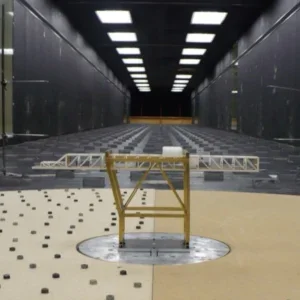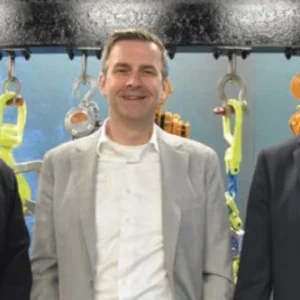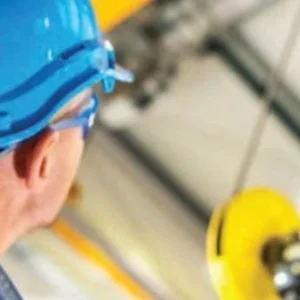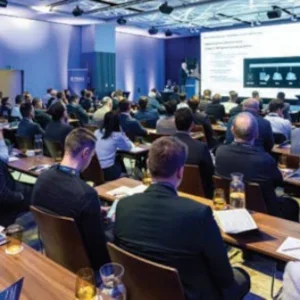Until two years ago Hans Schenk was working for a leading German manufacturer of load moment indicators. (He declines to say which one.) After 22 years he had decided it was time to set up on his own, producing force sensors and other operator assistance devices. Taking a handful of colleagues with him, he established HFS.
“We have lots of competitors,” says Schenk, “but we felt from the start that we knew enough about this industry to succeed.” Based in Duisburg, Germany, HFS has just six full-time employees and four part-timers, including Schenk’s wife who juggles her job at a bank with balancing the books at HFS. It is an experienced team, with even the youngest member having 15 years in the industry.
The company has a partnership with 3B6, an established Italian manufacturer of load moment indicators. It also has its own agent in the UK, MTS, and a distributor in South Africa.
One part of the business is distributing 3B6 products in German speaking countries. Schenk is eager to point out, however, that HFS has a strong identity of its own. “We make our own systems and do our own things,” he says. One of these things has been the development of operator assistance devices for electric overhead travelling cranes and harbour cranes.
HFS’s best selling product is the KLP force sensor, with sales of 200 a year. “One of these sensors is produced every working day of the year,” says Schenk.
Another core product is the ESA-4 amplifier. This device is installed inside the housings of electric overhead travelling cranes and gives the operator a direct source of information about the crane. It also houses the SWP (Safe Working Period) recorder, which informs the operator of the crane’s remaining lifespan.
The original plan was to grow in size to 10 employees within the first five years, a goal that has already been achieved, including part-timers, and Schenk is now aiming to increase the workforce to 15 over the next couple of years.
A vital part of the business, according to Schenk, is long term contracts that have been received from customers. “Three companies have running orders for the whole of 2001,” he says. “This means that there is continuous work for us, even if short term contracts dry up.” HFS also offers to make tailor-made systems for customers. “People come to us, they tell us what they need, and we design and provide a system for them. It can be retrofitting a big steelworks plant or working on just one crane. It doesn’t matter, we will do it.” Versatility is another of the strengths of HFS. The small team produces systems for EOTs, construction cranes, access platforms and harbour cranes. “We need people who are flexible” says Schenk, “Our field engineers need to know everything about different types of applications. They are real experts in every field.” H






